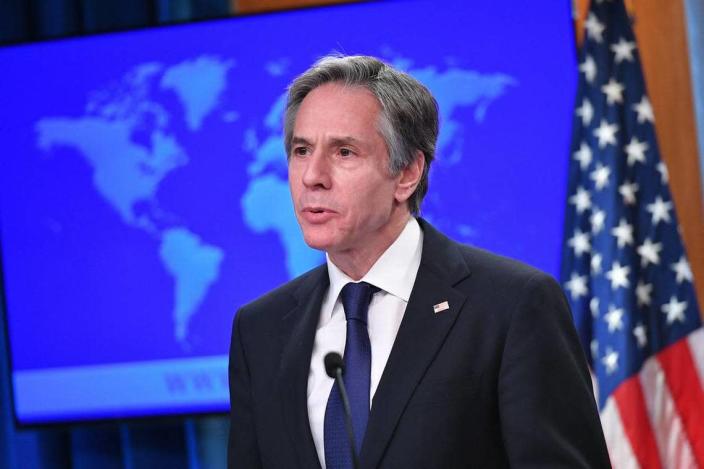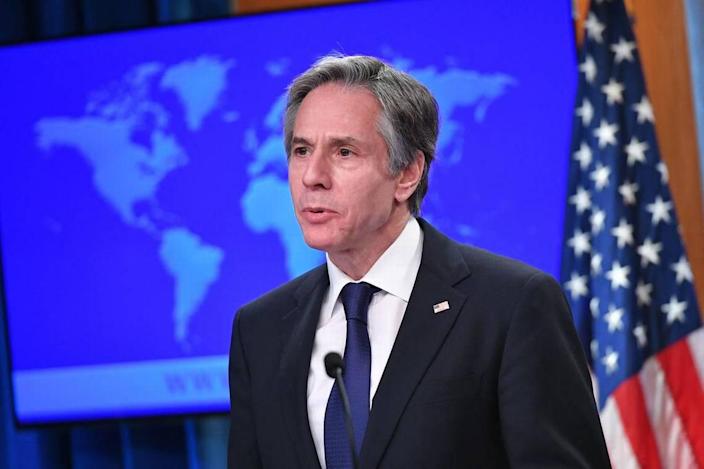An ongoing conflict between heavily armed Haitian gangs on the eastern outskirts of Port-au-Prince has left at least 18 civilians dead, and forced several hundred individuals, including children, from their homes, the country’s Office of Civil Protection and United Nations humanitarian organization said.
Violence between two gangs, 400 Mawozo, which was behind last year’s abduction of 17 Christian missionaries with a U.S.-based charity, and Chen Mechan, a rival group whose name translates to “Mean Dog,” first broke out early Sunday in the predawn hours, and it has been continuing since then.
Commenting about the overall situation in Haiti Wednesday, U.S. Secretary of State Antony Blinken told a U. S. Senate committee the country has “a long path forward” and “the criminality, violence, the lack of basic law and order, is a fundamental problem.”
Amid the sound of automatic gunfire, houses east of the capital have been set ablaze, and schools and businesses have been forced to shutter. The conflict, Haiti’s emergency responders said, is likely to intensify in the coming days, leading to new victims and more displaced people.
“We are monitoring the situation and we are going to start assisting the internally displaced people by providing them with first-response supplies,” Jerry Chandler, the director of the Office of Civil Protection, told the Miami Herald, adding that the organization plans to have a distribution Thursday morning for those who had taken shelter in the mayor’s office in Tabarre and other who sought refuge at the Tabarre public square.
In its report, Chandler’s team put the death toll at at least 20 as of Wednesday. The report points out that access to the north of the country by National roads 1 and 3 is compromised and can then lead to the isolation of the capital from all of Haiti’s regions since the National Road 2 connecting the southern regions is still blocked due to persistent insecurity.
The conflict in the neighborhood of Martissant, at the southern entrance of Port-au-Prince, has led to the forced displacement of more than 20,000 individuals since June. There are also reports of rapes and other acts of gang-related violence.
The newest outbreak of violence at the eastern corridor is fueling further panic given the vast region in which the battle is unfolding. It has all but shut down the road from Tabarre, the suburb where the international airport and U.S. embassy are located, to the border with the Dominican Republic border.
Also worrisome is that the confrontation zone, which is just a few hundred meters north of Toussaint Louverture International Airport, could expand. The report confirmed that a UN helicopter parked on the tarmac at Guy Malary Domestic Airport, adjacent to the international airport, was hit Monday by a stray bullet.
“The situation remains very volatile,” the UN said in its situation report.
In a separate statement, the head of the country’s Office of Citizen Protection, Renan Hédouville, said he’s “profoundly preoccupied at the deterioration of the security climate” and called on the interim government to take responsibility. Accusing the government of showing disregard for human rights, particularly the right to life and security, he condemned what he described as “inaction or silence of the current leaders.”
Among those killed between Sunday and Tuesday, were members of a family of eight, including three young children, the Office of Civil Protection said. As of Tuesday, Médecins Sans Frontières/Doctors Without Borders, the French medical charity that at the beginning of this month temporarily closed another one of its emergency health centers because of gang violence, had registered 22 injured people in its hospital in Tabarre.
“Unfortunately, a young girl died from her injuries,” the Office of Civil Protection said.


In addition to the deaths, gunshot wounds and forced displacements, a dozen houses were burned, including in the districts of Marécage and Butte Boyer. Information collected from affected people indicated that the majority of the population of the neighborhoods of Tabarre 16, Tabarre 14, Impasse Bellevue, and Aquafine has fled their homes.
On Wednesday, a pessimistic-sounding Blinken told the U.S. Senate Appropriations Committee that Haiti faces a long road ahead and the U.S. was working to address the gang violence, “including by supporting and strengthening the Haitian national police and getting other countries to do the same.”
He was asked by Sen Dick Durbin, an Illinois Democrat, about the situation the U.S. currently faces in the Caribbean while giving testimony before the appropriations committee.
Blinken did not make a specific reference to the ongoing conflict, which has also forced residents in Clercine, Croix-des-Missions, Shada and Santo to be effectively held hostage in their homes. However, he did speak about the political crisis that has deepened since last July’s assassination of President Jovenel Moïse and the ongoing schism between the interim government and members of civil society who want to lead the country.
“We need to see the government, civil society, all actors come together to get us to elections, free and fair elections, so that we establish a fully legitimate Haitian government leadership,” Blinken said. “That work is in progress; we’re trying to facilitate that, but having said that, the problems are so deep rooted, and so challenging that I think the road is very long.”
Moïse’s murder has exacerbated many of the problems that existed while he was alive and governing. But today in addition to the worsening social and economic situation, there is no elected executive in the country; Parliament is down to just 10 senators and the justice system is all but shut down with lawyers and judges unable to even go to the courthouse in Port-au-Prince. It is located yards away from a gang-controlled slum and kidnapping lair.
While police have tried to go after the gangs, they have been outgunned and outmaneuvered — and in some cases, forced to flee for their own safety.
As the U.S. focuses on trying to get elections under way “and having a government that can fully represent the people, we’re trying to get basic security by bolstering the police and dealing with the criminality and the gangs, which are terrorizing parts of the country,” Blinken said.




